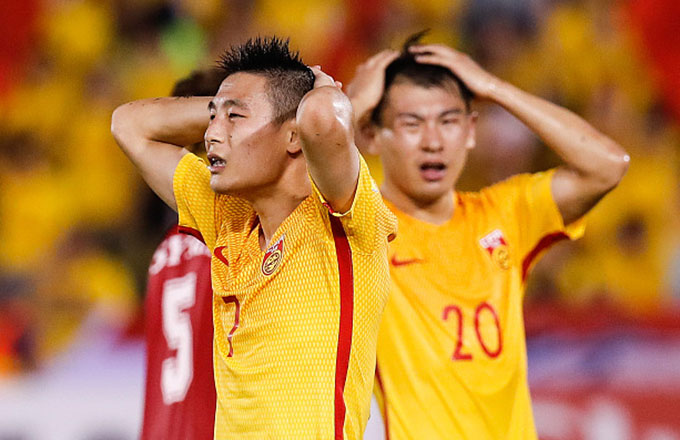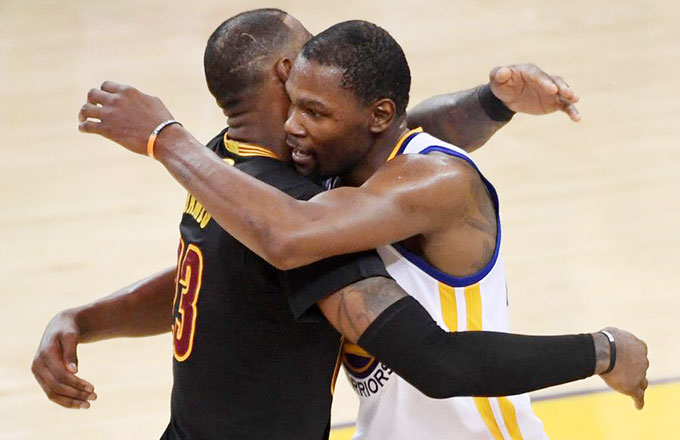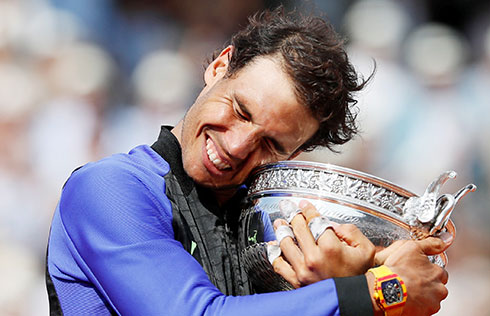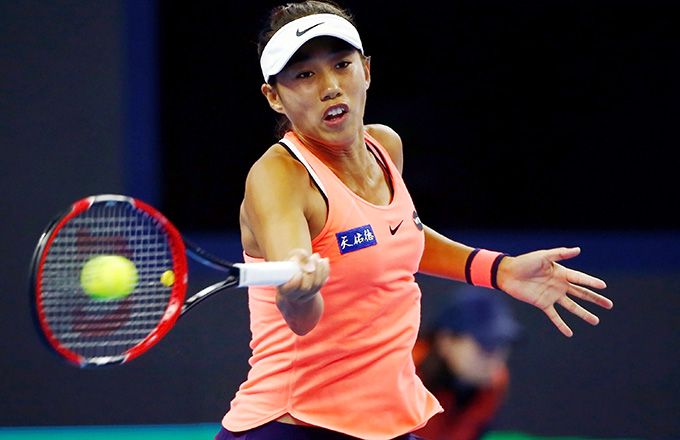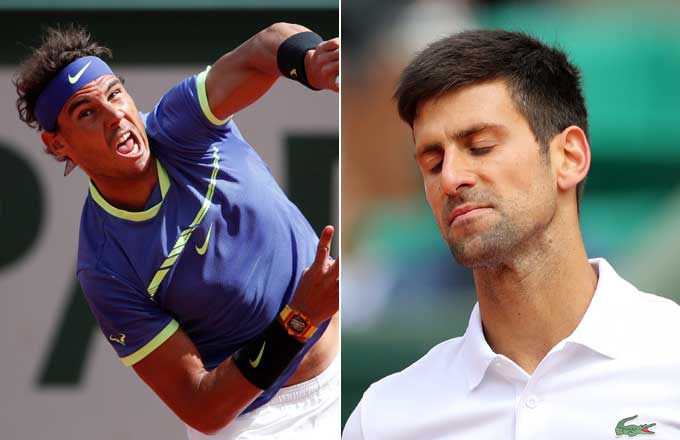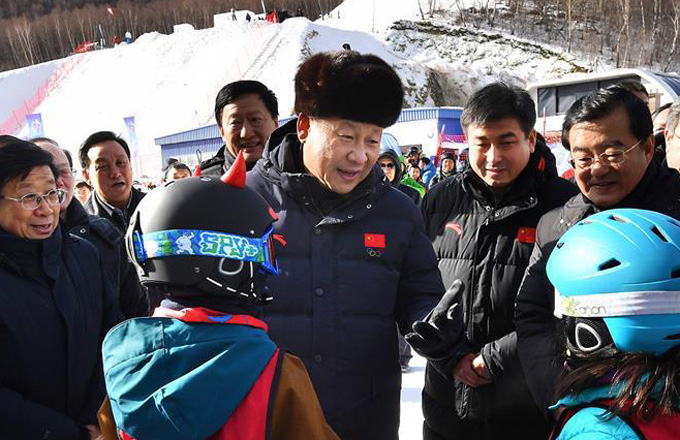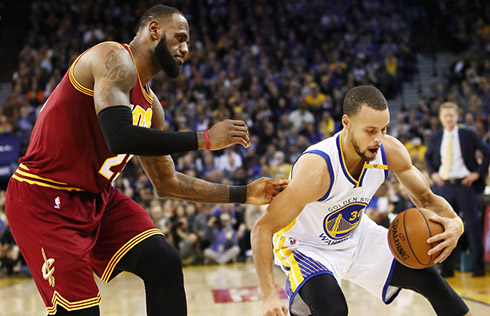The Syria draw should signal a changing of the guard
Forget the injustice of a 93rd minute free kick. Forget the dubiousness of Syria's first half penalty. Forget the urge to calculate the goal differential needed to qualify for the 2018 World Cup in Russia during the autumn matches against Qatar and Uzbekistan. It's time for Marcello Lippi and the Chinese Football Association (CFA) to change tack and apply a medium-term approach.
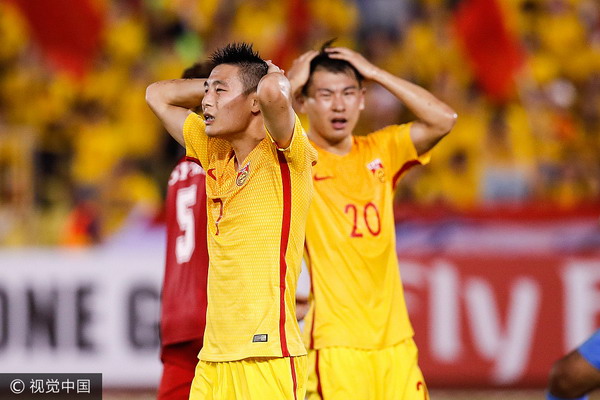 |
|
China's Wu Lei, No. 7 and Yu Hanchao, No 20, look dejected during the 2018 Russia World Cup qualifier against Syria at Hang Jebat Stadium, Malacca City, Malaysia on June 13, 2017. [Photo/VCG] |
Having being hired in October 2016 amidst a demoralizingly dysfunctional qualifying campaign, Lippi's task was always going to be an awkward balancing act of pragmatically collecting points while building for the future by introducing the next generation of Chinese players.
Thus far, the world cup winning coach has understandably prioritized points over posterity and, if viewed through an eye of realism, he has succeeded – not to the extent necessary for the guozu to reach next summer's finals, but such was the utterly bleak quagmire in which Gao Hongbo left the national team.
Lacking any players resembling a high-caliber game changers, Lippi has improved the side's organization, ability to follow a game plan, and, if the sound bites emanating from the squad are to be believed, reinvigorated team spirit.
China's execution of set pieces is an obvious manifestation of the Italian's hard work; Yu Daobao's goal in the famous win over South Korea and Wu Xi's volley against Syria, though created via long ball, both evidenced training ground drilling.
The defeat in March to Iran and the recent draw to Syria showcased an inability to control games at pivotal moments – admittedly, it's harsh to criticize China for a 1-0 loss away to Asia's in form team. Although acquiring international savvy is an integral part of the learning experience Lippi has been tasked with guiding this team through, we must question if the right players are learning the lessons?
Lippi's selections have been conservative and centered on an aging group of players that he was familiar with from his time at Guangzhou Evergrande such as Gao Lin, Feng Xiaoting, Yu Yanchao. The average age of the side that lined up in Malaysia was 28, which, though not exactly ancient in footballing terms, will certainly be past its prime for the 2022 cycle.
Having signed a contract that runs until at least 2019, it would seem obvious that now is the time for Lippi to discover and develop China's next core group of players. Cough, cough step up Wu Lei. One hopes his tendency to continue calling up relatively uncapped senior players is over. To be blunt, the likes of Xiao Zhi and Fan Xiaodong, at 32 and 30 years old respectively, are hardly going to be driving the team towards achieving national glory.
While it would be foolish to suggest the CFA might impose the type of youth friendly quota it has forced upon Chinese Super League clubs, with 22 year old Deng Hanwen the only genuinely young player to make an appearance against Syria, it wouldn't be surprising if Lippi is politely coerced into giving younger players more playing time.
Of course, the cruel irony of introducing fresher faces for the remaining games against Uzbekistan and Qatar is that the side might suffer not merely a downturn in results but also in the momentum Lippi seems to be slowly building.
Yet, irrespective of how short-term setbacks might appear to China's proudly vocal supporters, it's undoubtedly a necessary sacrifice for the team's long-term future.




